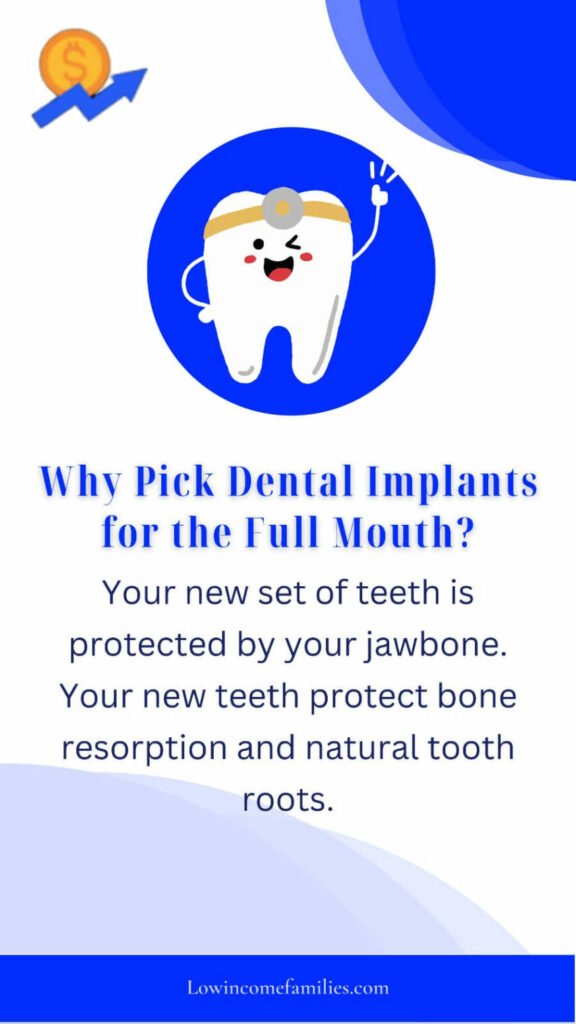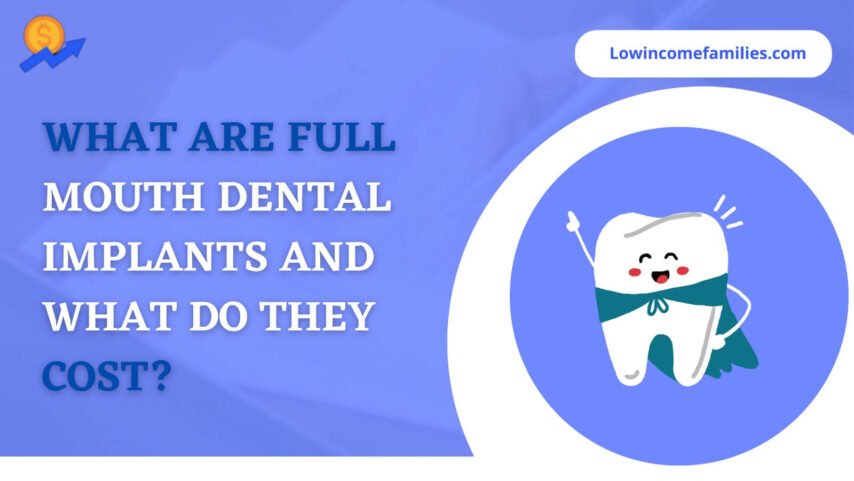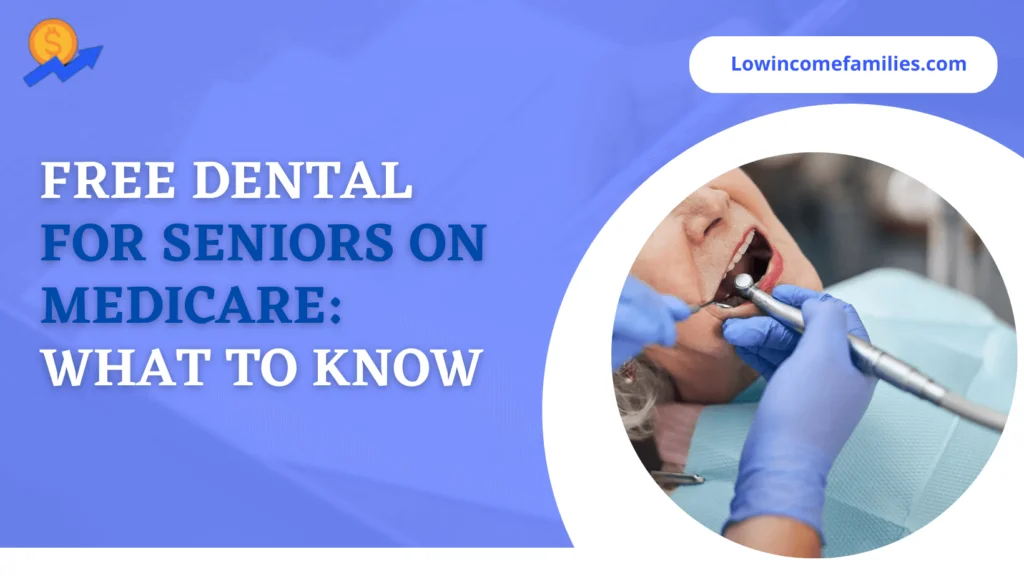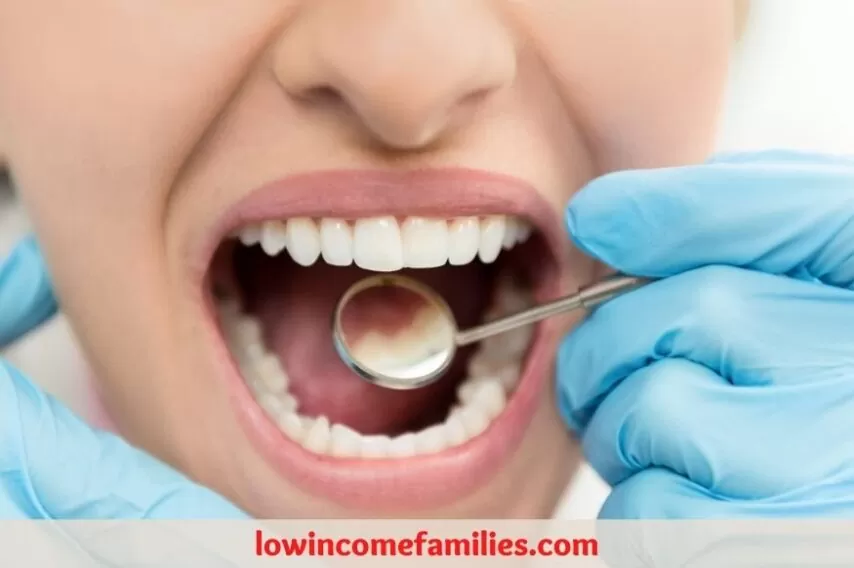Dental implants are ideal if you have lost all of your teeth. Your upper or lower arch, or maybe both, may experience tooth loss. They are an alternative to conventional full or partial bridges and dentures for correcting gaps in the mouth thanks to ongoing improvements in modern dentistry. You can essentially eat everything you want.
A very prevalent occurrence that affects people of all ages is tooth loss. And although losing all of one’s teeth is more prevalent in older people, accidents and certain medical problems can also result in this in young individuals. Dental implants are the perfect treatment to stop tooth loss, no matter what the underlying cause may be.
To replace either the upper or lower arch of teeth with a single bridge, whole mouth dental implants are used. Full dental implants are the best choice for patients with adequate jaw bone structure. The term “All-on-6” refers to the placement of six implants in the boniest parts of the mouth.
You’ll receive a complete arch bridge that is modelled like your own teeth. This method provides a biting force that is equivalent to that of real teeth, helping in the restoration of appearance and functionality.
Why Pick Full Mouth Dental Implants?
Dental implants are ideal if you have lost all of your teeth. Your upper or lower arch, or maybe both, may experience tooth loss.
They are an alternative to conventional full or partial bridges and dentures for correcting gaps in the mouth thanks to ongoing improvements in modern dentistry. You can essentially eat everything you want.

Your jawbone is covered with full mouth implants. A dental implant consists of three parts, the first of which is the insertion of a titanium screw to serve as a replacement tooth into the gum and jawbone.
Your new set of teeth is protected by your jawbone. Your new teeth protect bone resorption and natural tooth roots.
Check Also: Free dental implants for recovering addicts
What Are The Options For Full Mouth Dental Implants?
For the replacement of some or all lost teeth, various implant kinds are available, such as All on 4 implants and same-day complete mouth dental implants.
-
All On 4 Implants
All-on-4 dental implants refers to the stabilisation of an entire arch of teeth using only four dental implants. With all-on-four implants, you may easily replace missing teeth without having to install a different implant for each one.
Instead, all of your mouth’s teeth are replaced with four implants. One day is all it takes for the procedure to be completed.
-
Same Day Full Mouth Implants
Your gums and jaw still need time to heal before receiving same-day dental implants. As a result, crowns cannot be placed in the mouth until it has completely healed.
On the day of your treatment, temporary teeth will be provided. You will receive permanent teeth to quickly replace the temporary ones after your mouth has recovered completely.
-
Zirconia Full Arch
Zirconia (Zirconium Dioxide) is a recently developed dental and medical substance that is as strong and biocompatible as titanium but has a porcelain-like appearance.
Unlike acrylic dentures and even other full arch options, zirconia full mouth dental implants won’t stain, chip, or break.
Check Also: Will Medicaid pay for Dental Implants
How Much Would A Full Mouth Of Dental Implants Cost?
The total cost of a full mouth dental implant operation can range from about $7,000 to $68,000. The average price of these implants is roughly $25,000.
Remember that the price range for a top or bottom set of complete mouth dental implants can range from $3,500 to $30,000. However, some factors can impact how much you ultimately pay for tooth implants.
Dental implants for the entire mouth are sturdy and reliable. They don’t need adhesives, in contrast to standard dentures. When a patient is missing several consecutive teeth, a dentist frequently suggests this kind of implant option.
Only after the teeth have been removed may these implants be inserted. The cost of the surgery as a whole may rise if teeth are removed.
How Much Do Dental Implants For The Full Mouth Cost On Average?
The cost of a full mouth of dental implants varies depending on the type you choose as well as other elements. If you’re looking for the average cost of same-day implants or all-on-four dental implants close to you, bear the following points in mind:
- All on 4: For implants composed of composite or acrylic, the price ranges from $20,000 to $30,000. Unless the surgery needs to be done in many locations, in which case the average price will rise to almost $30,000, this is the least expensive alternative.
- Implants placed in one day: Due to the shorter waiting period at the dentist’s office, same-day implants are less expensive than regular implants. Costs for same-day full mouth dental implants can range greatly, however they can be as high as $30,000.
Cost-Consequencing Factors For Full Mouth Dental Implants
The following three key variables can have an impact on how many dental implants cost:-
- Your home address. The West Coast has a greater cost of living than several locations on the East Coast, on average. This can have an impact on the price of your implants. Additionally, the cost of dental implants in a city is often higher than in a suburban or small-town setting.
- The implant’s construction substance. Implants can be created by dentists using a variety of materials. The price may change depending on the type (e.g., titanium or zirconium).
- The amount of dental experience. Dentists with greater experience tend to charge more than dentists with less training.
Payment Options For Full Mouth Dental Implants
For whole mouth dental implants, a lot of dental offices provide payment options. Check with your dentist to see whether they provide in-house, interest-free financing options.
Instead of paying for the whole treatment up front, this can let you spread the cost over time. Another possible way to save money is through dental savings plans.
Are There Any Risks Associated With Full Mouth Implants?
Any operation can have consequences, and while the success rates are very high, some do fail. This is to be expected. Below are some common listed problems :-
- Infection :- The degree and site of an infection will determine how it is treated. A bacterial infection in the bone, on the other hand, might necessitate the removal of the implant and any contaminated bone tissue, followed by a bone and soft tissue transplant. As an illustration, a bacterial infection in the gum might call for antibiotics or a soft tissue graft.
- Gum Recession :- A person could notice that the gum tissue around the implant starts to recede in specific circumstances. Pain and inflammation may result from this. To avoid having to remove the implant, it is crucial to get a quick dental evaluation.
- Excessive Force Damage :- Unknowingly, some people may apply too much force to their dental implant. For instance, some individuals brux, or grind their teeth, while they sleep. To protect both the implant and their natural teeth, people who are prone to this habit may need to wear a mouth guard. Persistent pain or discomfort tingling, tickling, or burning sensations in the gums and skin persistent numbness on the implant side, affecting the lower lip and chin in particular.
What Can I Expect Following A Full Mouth Implant Procedure?
After a full mouth implant procedure, some discomfort is typical. Your doctor will issue you a pain medication prescription if necessary.
Although your final teeth won’t be inserted for roughly three months to allow for complete healing, most people return to work the day after this treatment. You might anticipate some pain and bleeding for the first two days following surgery.
Pain can be managed with over-the-counter medication, and after the third day, discomfort should disappear. Within a few days, the stitches in your gums will fall out.
You will probably receive detailed instructions on how to take care of your dental implants from your dentist. Your dentist will issue an antibiotic prescription if necessary.
Using an antibacterial mouthwash for the first week after surgery is crucial. Make sure you know how to clean around the implants while they recover. To prevent infection, take good care of your new teeth.
Does Getting Dental Implants Abroad Make Sense?
It can be alluring to consider travelling to a location where your money will go a bit farther to receive medical treatment. We understand the appeal of combining your treatment with a vacation in the hopes of saving money, as the cost of living here isn’t the lowest.
But, the overseas dentist is less qualified to offer advice on dental implants since they are less familiar with your medical history. When you ordinarily wouldn’t be qualified, they can nevertheless think you qualify for implant dentistry.
Visits for follow-up can get very inconvenient. Additionally, it becomes more challenging to keep track of all the added expenses. You won’t be able to successfully see your dentist abroad if you have concerns, get unfavorable side effects, or experience an emergency after treatment.
How Come Full Mouth Dental Implants Are So Expensive?
The price of whole mouth dental implants depends on several factors, including the following :-
- How many implants your dentist has placed in patients
- The material you select for dental implants
- No matter if you require bone transplants
- Whether you need to get your teeth pulled
- The type and required quantity of imaging scans
- Your choice of full-mouth dental implants
- Cost of hiring an expert
- Prior tests to determine your eligibility
- Multiple visits to the dentist
How Are Dental Implants Of Full Mouth Cleaned?
Keep your new teeth free of plaque and bacteria if you want to prolong the life of your implants. Bacteria and plaque, which can induce infection in the tissues, are typically to blame for implant failure. Your choice of toothpaste is just as significant as how often you clean your teeth.
You don’t need to use an abrasive toothpaste with stain-removing ingredients on your dental implant bridge because it doesn’t discolor like natural teeth do.
Additionally, it’s crucial to use a water flosser or dental floss to get rid of any food particles stuck between your gum line and your bridge of teeth. Proper dental hygiene must always be practiced.
Frequently Asked Questions
Does insurance cover the cost of implants and how much do they cost?
In general, the price of a dental implant to replace a single tooth is nearly equal to the price of a traditional fixed bridge. Depending on the circumstances, dental implant therapy may be covered by some insurance plans.
The price will change according to the patient’s needs, the size of the bone, and the location. A prosthodontist will evaluate your situation depending on your particular needs.
What percentage of dental implants are successful?
It varies from person to person, depending on health and behaviors. Dental implants are expected to be successful for a healthy person with good oral hygiene and good health, with reported success rates above 90–95 per cent.
What is the permanence of dental implants?
Dental implants are not vulnerable to decay like natural teeth are, yet gum health is essential to sustaining long-term implant success.
Dental implants must be maintained with diligent patient home care and regular professional cleanings and examinations. Since every patient is unique, success depends on a range of variables, including diagnosis, planning, medical history, and others.
What if I want implants that are “metal-free”?
Teeth that are “metal-free” do not exist. Almost all materials utilized to replace teeth contain some kind of metal ion. As with hip, shoulder, and knee implants, dental implants are constructed of a highly biocompatible titanium alloy, and titanium allergies are exceedingly uncommon. There aren’t any well-established alternatives to titanium dental implants right now.












